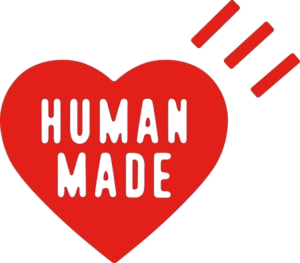
Beyond The Label
Some brands shout. Others whisper.
Human Made doesn’t speak. It breathes.
Behind every cotton tee and military-inspired jacket is a silent manifesto, stitched together with threads of nostalgia, rebellion, and craftsmanship. This isn’t just streetwear; it’s a living, evolving artifact—a love letter to the past and a challenge to the present.
The Origins of Human Made: A Fusion of Past and Future
NIGO’s Vision and the Vintage Obsession
Human Made wasn’t born in a boardroom. It sprouted from the chaotic brilliance of NIGO’s mind—a labyrinth where dusty Americana vintage shops and futuristic Tokyo alleyways collide in harmony. Before Human Made, NIGO reigned supreme with BAPE, a brand known for loud prints and louder culture. But something quieter called to him: the craftsmanship of yesterday.
He scoured flea markets, ran his fingers officialhumanmadeshop.com over faded denim, studied every stitch of forgotten workwear. Human Made was his answer to fast fashion’s synthetic noise—a brand rooted not in trends but in timelessness. A bridge between epochs, connecting mid-century America to 21st-century Japan with meticulous care.
A Philosophy Stitched in Cotton: Craft Over Hype
Why Quality Always Wins in Silence
In a world addicted to immediacy, Human Made is slow. Painfully, beautifully slow. Each garment whispers tales of selvedge denim, chain-stitched hems, and hand-printed graphics born not in sweatshops but in workshops where artisans still know the weight of fabric against skin.
The philosophy? Make something so well it doesn’t need to shout. That’s why a Human Made tee feels oddly familiar, like something inherited rather than purchased. There’s a weight to it—both physical and emotional—that can’t be mass-produced. Quiet luxury doesn’t scream; it waits to be noticed.
Decoding the Aesthetic: Where Americana Meets Tokyo Streets
The Art of Retro-Futurism in Fashion
Human Made’s aesthetic is a paradox wrapped in a duck canvas jacket. Americana workwear silhouettes, collegiate graphics, and vintage advertising motifs tango effortlessly with Japanese precision and playful surrealism. This isn’t mere nostalgia—it’s retro-futurism, where yesterday’s charm is repackaged for tomorrow’s streets.
One might spot a ‘Gears for Futuristic Teenagers’ logo slapped on a garment that looks lifted straight from a 1950s service station. It’s ironic, intentional, and genius. Human Made doesn’t just borrow from the past; it reanimates it, giving old ideas new breath beneath neon lights.
Inside the Workshop: The Unseen Hands Behind Human Made
Artisans, Tailors, and The Ghosts of Garments Past
Behind every meticulously faded sweatshirt and military pant is a lineage of craftspeople—modern-day alchemists of fabric and thread. These aren’t faceless factories but individuals who see clothing as more than commerce. In Kyoto and Okayama, small ateliers hum with sewing machines older than the interns at hype-driven brands.
There’s reverence here. For fabric, for tradition, for the unseen ghosts of garments past. Human Made respects process. Dye baths take time. Fades require patience. Imperfections aren’t flaws; they’re fingerprints of authenticity.
The Cult Appeal: Not for Everyone, And That’s the Point
Exclusivity Without the Arrogance
Human Made isn’t for everyone, nor does it try to be. It doesn’t chase trends or algorithms. It offers no loyalty points, no flash sales, no influencer codes. This is a brand for those who understand the difference between a limited drop and a timeless piece.
The cult following? They aren’t loud. They notice the cut of a sleeve, the fade of a hem, the weight of heritage in a simple logo. Human Made operates in scarcity, not as a strategy but as a philosophy: less is sacred.
Human Made in Pop Culture: From Kanye to the Guy Next Door
How Subtle Influence Spreads Louder Than Logos
Kanye wears it. Pharrell lives in it. Yet Human Made remains largely untouched by the glossy pages of mainstream fashion rags. It exists in the undercurrent, shaping style not through billboards but through quiet influence.
Those in the know—designers, musicians, skaters—recognize it without fanfare. A jacket here, a tee there. No logos blaring. Just quality recognized across oceans. Human Made thrives in the shadows, where authenticity finds its most loyal admirers.
The Future: Sustainability, Nostalgia, and Quiet Rebellion
Why Human Made Refuses to Play Fast Fashion’s Game
As the fashion world chokes on its own overproduction, Human Made offers an antidote: sustainability rooted in longevity. These aren’t clothes designed to be discarded after a season. They’re built to be worn, repaired, lived in.
The rebellion here isn’t loud activism. It’s in the decision to create fewer things, better. To celebrate imperfection. To revive the old-world belief that clothing can, and should, outlive trends. Human Made doesn’t need to shout about sustainability—it embodies it.
Conclusion: Wearing Stories, Not Just Clothes
Human Made isn’t a brand; it’s a secret handshake between those who see beyond the surface. It’s about wearing history, honoring craft, and finding beauty in restraint. In a culture obsessed with the new, Human Made dares to look backward and in doing so, it forges quietly ahead.


